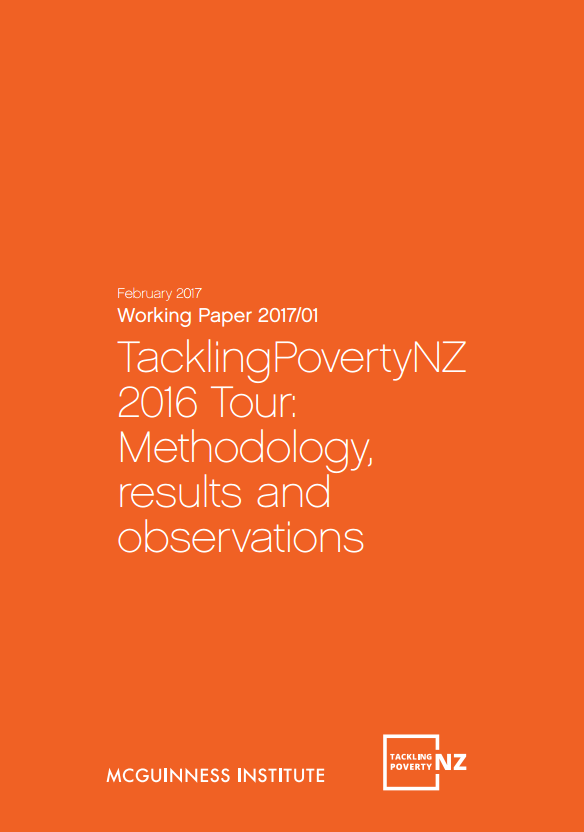As part of the follow-up to the 2016 TacklingPovertyNZ workshop tour, we will be posting one blog a day over the next few weeks to accompany the workshop speaker videos published on our YouTube channel.
Watch Deidre Otene, General Manager of The MOKO Foundation, share her thoughts on how to shift plans into action to overcome poverty in Te Tai Tokerau at the one-day Kaitaia TacklingPovertyNZ workshop on 15 August 2016 in the video below.
Deidre has dedicated her focus and talents towards social and health services, and youth and adult justice. She has been in Australia working for the Benevolent Society and in Auckland working in the prison system to overcome inequalities for Māori women, before returning to her home in the Mangamuka district. As General Manager of The MOKO Foundation, she has been implementing an array of programmes to generate sustainable, intergenerational change in the community.
Deidre shares three urgent areas that need development in order to overcome poverty and foster a generation of healthy, aspirational leaders.
- Economic Development: For The MOKO Foundation, employment, education and enterprise are key in generating a local economy that allows the innovative capabilities of the community to be realised. In order to overcome intergenerational benefit dependency, Deidre argues that there is a need for more apprenticeships and internships. The Foundation has already begun to put in place a Quality Mentoring Programme and argues that education in information technologies and greater access to the Internet will be key in creating more career paths and opportunities for young people.
- Intergenerational Leadership: Deidre asserts that, to inspire self-confidence among young people, they need to be surrounded by local, innovative leaders and connected to others from around the world. She states that creating these networks will expose young people to their full potential. The MOKO Foundation has been funding young people from the Far North to visit overseas Leadership Conferences and large high-tech companies in Silicon Valley. She states that creating these links between youth and innovative leaders, will motivate a shift in mentality towards active participation in the community and the broadening of horizons.
- Health: The Far North has the highest rates of MRSA (Methicillin-resistant Staphylococcus Aureus) infection in the country. Through corporate sponsorship, The MOKO Foundation has put into effect long-term solutions to rid the communities of the epidemic, arguing that treating isolated events is merely a Band-Aid measure. They have brought together funds to provide for health care ranging from prescriptions to specialist treatments. To ensure a healthy population, there must be greater health literacy and a catering to basic needs so that time and resources are not spent on short-term, remedial fixes.
A common theme throughout the presentation was that sometimes risks must be taken to get action, and this is evident through the strategies The MOKO Foundation has begun to implement in Te Tai Tokerau.
About the TacklingPovertyNZ 2016 tour
The 2016 tour was a response to a 2015 three-day workshop that brought together 36 participants aged 18 to 25 representing a diverse range of backgrounds from throughout New Zealand. Participants found that ‘assuming that one solution will work everyone indicates a failure to address cultural disparities and injustices, and an ignorance of the diversity of our population’. The purpose of the 2016 tour was to build and share ideas on how to tackle poverty, come up with local solutions and connect like-minded people within communities.
The Kaitaia workshop was one of six, along with workshops in Queenstown, Manuwatu Rotorua, Gisborne and Kaikohe. A discussion paper for each area visited has been published on our website. These papers are specific to each community and together form a series showcasing insights from individuals who attended a one-day workshop in their local community.

To learn more about the tour, read Working Paper 2017/01 – TacklingPovertyNZ 2016 Tour: Methodology, results and observations here. This paper brings all the outputs from the six workshops together and aims to illustrate the diverse range of challenges and opportunities existing in communities.

In 2017 we would like to build on these findings. There was a lot to learn and digest, and we are still working through what this means in terms of public policy. To stay up to date with Project TacklingPovertyNZ, subscribe to the newsletter here.
